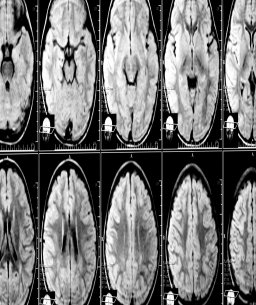Brooklyn Brain injury Lawyer Discusses the Serious Damages a Patient Suffers Due to Memory Problems

Memories are a key part of our identity. They’re critical for helping us both retain a sense of who we are and plan for the future. Following a traumatic brain injury (TBI), one of the deeply disturbing problems people can experience is an impairment in memory-related abilities. They may lose some existing memories or may experience a decline in their ability to form and retain new memories.
Researchers are still trying to understand what causes different levels of severity in memory problems, and why outcomes and prognoses differ among individuals. They’re also investigating possible treatments. For example, a recent study shows some early promising results from a drug that may be able to reverse a decline in memory following a TBI. However, the tests have so far been conducted on rodents, and there’s no guarantee that human clinical trials will show the same results.
Memory is complex, drawing on various parts of the brain and tying together a number of abilities. What are some of the difficulties that memory problems post-TBI can inflict on people?
Struggles with self-care
Recovery from a TBI can take a long time, and full recovery may remain out of reach. People may have to cope with permanent problems or symptoms that linger for months or years. Memory problems make it more difficult for people to take care of themselves. They may get confused about dates, miss appointments, fail to make important payments, and forget to take medications or perform other self-care behaviors. This can exacerbate their existing problems, leading to a more costly and difficult recovery.
Job loss or diminished earning ability
Memory impairments can make it much more difficult for people to carry out their jobs. If their work performance deteriorates – and they struggle to retain new information, plan ahead, or stay on top of a complex, active schedule – they may wind up losing their job. If they manage to find other work, their earnings may be significantly lower. For some people, post-TBI memory problems are so severe or manifest in combination with other cognitive and physical difficulties to an extent that holding down a job isn’t possible.
Poor academic performance
School ideally opens up numerous possibilities, both for younger people and for older adults who are seeking to obtain a degree, a certificate for a particular set of skills, or more valuable knowledge in general. Memory problems increase the likelihood that people will struggle with their academic work and need to drop out, damaging their career prospects and hindering their ability to develop to their full potential.
Damaged relationships
Because memory plays such an important role in contributing to one’s sense of self and ability to function, memory difficulties can wind up causing problems not only in the way we think of ourselves but in the way we relate to other people. Damaged relationships can inflict a significant emotional, psychological, and financial toll on people.
Coping with memory loss after a TBI
Depending on the severity of the memory loss, along with the other problems stemming from a TBI, people will find different ways of coping helpful. Relying on certain technologies and new systems of organization can help. Participating in cognitive rehabilitation can also prove useful. Some people will also need a more regular kind of assistance, such as with a home aide.
Recovering as much as possible takes considerable effort and support. When you contact us after a suffering a TBI, we will work closely with you to review the circumstances surrounding the injury and fight for you to receive fair compensation that will help you cope in the aftermath. Memory problems are costly in a number of ways, and you deserve strong support in order to heal and adjust to the effects of your injury.



